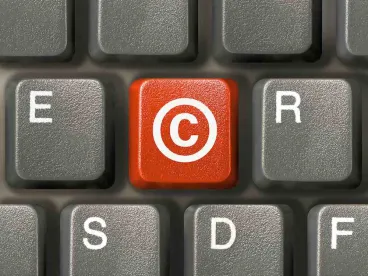PART ONE
We have all heard a lot about ChatGPT and the (to some) alarmingly fast pace of the development of Artificial Intelligence (“AI”). But online content creators and influencers have a special reason to be concerned about theft of their personality and work – and with it, their livelihoods. The issue was brought into stark relief when, as The New York Times headline reported, “An A.I. Hit of Fake ‘Drake’ and ‘The Weeknd’ Rattles the Music World.” AI can imitate art – in all its forms – as well as people. The root of the problem? GPT-3 and AI like it belong to the “neural network machine learning model” that is trained on the Internet. And it is on the Internet that creative content (and people) can be found and their personas stolen.
This is the first of a two-part post on the impact of AI on online content creators and influencers. This blog, Part One, will focus on the appropriation of the right of publicity or “theft of personality” as well as theft of online content by AI. Every individual has the right to commercialize their own image or likeness, voice, and other unique aspects of personality, but the right attaches most often to celebrities and well-known individuals, including influencers, whose livelihoods hinge on the exploitation to this right. Influencers and celebrities, like other content creators, own the copyright in the work they create.
Fortunately, companies have begun to develop and market tools that mask people as well as content so that AI cannot be “trained” on them. However, the technology is only beginning to emerge and is not foolproof. Without regulation by Congress, we cannot rely on major social media platforms to develop safeguards that prevent them from being raided by AI, because the platforms often profit on a toxic environment. So it’s important for celebrities and influencers to understand and perfect their legal rights and to enforce them.
A celebrity’s interests may well align with a talent agency, or major entertainment company that profits from their success. In the Drake/Weeknd case it was the music studios that eventually got the AI-generated content taken down. That can be of some practical help. But not every influencer has representatives that will take action for them.
For this reason, the Digital Millennium Copyright Act (“DMCA”) is also a tool in enforcing the right of publicity when the content generated by the AI simulates, or even directly copies, the influencer/celebrity content. The DMCA allows a content owner, including an influencer, to send a “take down” notice based upon copyright in creative work to an Internet Service Provider (ISP) who hosts the content. The law is important because infringement on the web is often perpetrated anonymously or pseudonymously, so it’s often impossible to enforce rights against the infringer.
Even if the infringer protests the takedown, the content must remain down if the copyright owner (celebrity, influencer, creator, etc.) sues within fourteen days of the infringer’s protest, thus obviating the need or cost associated with applying to a court for an emergency injunction. An influencer or celebrity’s social media posts, including videos, should all be registered for copyright, as ISPs will often insist on proof of copyright ownership. Copyright owners can’t sue without first having a registration. And all assignments/work made for hire agreements should be secured by film crew, editors, and anyone else working on the influencer video so such registration is not subject to challenge.
Additionally, if it’s not content but the celebrity’s name, image, voice, or other unique aspect of personality that is stolen, the celebrity may have recourse under the federal trademark law, the Lanham Act, as well as in the common law right of publicity. In situations where the celebrity or influencer is unable to achieve results with a demand letter or court action, including application for emergency relief, the legal process should be undertaken with the assistance of qualified counsel. These remedies are available even if the celebrity/influencer’s content is not stolen, but is falsely attributed to them, or includes their name, likeness, or voice without permission and with the intention of commercially profiting.
Armed with these tools, a celebrity or influencer should be well positioned against theft of personality and content in an era where it is becoming even easier to do both. Look out for Part Two, as I will cover using AI as a tool to create content and profit from it, as well as current limitations under copyright law that should be considered.




 />i
/>i

